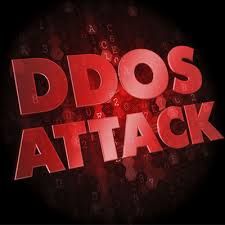
Distributed Denial of Service Attacks Out of Control
DDOS attacks have surpassed automated defenses, says Prolexic, a firm specializing in online security. http://www.reuters.com/article/2014/03/05/us-cyber-ddos-idUSBREA240XZ20140305
Last month Cloudfare, another firm specializing in online security, faced its biggest DDOS threat ever. http://blog.cloudflare.com/technical-details-behind-a-400gbps-ntp-amplification-ddos-attack That attack rose 30 percent higher in power than the largest attack in recorded history.
Stories of destroying Mt. Gox and crippling Bitcoin rapidly have risen to the status of mythology. http://techland.time.com/2014/03/03/what-happened-to-mt-gox/ In Europe, Spamhaus news of their DDOS attack hit across the continent. http://gigaom.com/2014/02/11/record-breaking-ddos-attack-struck-on-monday-according-to-reports/ New names of victims like Namecheap reach headlines daily. http://news.cnet.com/8301-1009_3-57619235-83/namecheap-targeted-in-monumental-ddos-attack/
What causes most DDOS attacks? It’s not bad weather. http://www.ponemon.org/blog/live-threat-intelligence-impact-report-2013 Analysts at http://HamiltonFinanceServices.com argue that warring nations, crime, and similar dark forces cannot account for all of the cyber carnage.
One especially nasty source of the worst recent attacks is wireless printers. You heard right. Wifi connected printers paired with bots intent on emitting millions of data requests offer the latest in DDOS tech. The software can be purchased cheaply by college kids for school projects. http://www.computerworld.com/s/article/9238833/Printers_routers_used_as_bots_in_DDoS_attacks
No matter what causes the attacks, some firms like Black Lotus make big money protecting against them. http://www.blacklotus.net/ddos-protection-firm-selects-telx-cloud-connection-center
So what should you and I do? One expert who focuses on cyber threats, Alexander Klimburg from the Austrian Institute for International Affairs, is on loan to Harvard University to research an answer to this question. His answer so far: “It’s very hard to know what to do.” http://belfercenter.ksg.harvard.edu/experts/2690/alexander_klimburg.html
Any opinions out there? Aside from staying offline and shutting down your online business, will cyber bullies reign for the foreseeable future?



